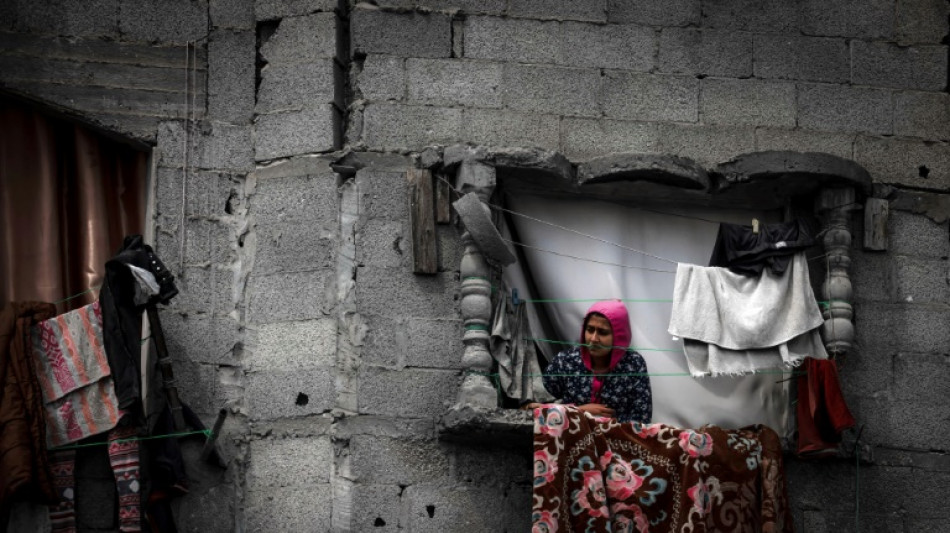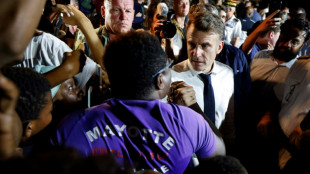

UN chief to visit Gaza border as Israel vows Rafah attack
UN Secretary-General Antonio Guterres is expected to visit Egypt's border with Gaza on Saturday, after Israel vowed to send its troops to fight Hamas in the nearby city of Rafah, even without United States support.
During his visit, Guterres plans to reiterate his call for a humanitarian ceasefire, though renewed international pressure has so far failed to dissuade Israel from the planned ground offensive in Rafah, where most of Gaza's population has taken shelter.
Despite warnings that such an operation would cause mass civilian casualties and worsen the humanitarian crisis gripping the territory, Israel's Prime Minister Benjamin Netanyahu said he will press ahead with the attack.
"I hope to do that with the support of the United States, but if we need to, we will do it alone," Netanyahu told visiting US Secretary of State Antony Blinken on Friday.
International efforts to pause the almost six months of fighting have intensified, with the health ministry in Hamas-run Gaza reporting 32,070 people killed in the Palestinian territory as of Friday and multiple UN warnings of imminent famine.
"This is a man-made catastrophe," the head of the United Nations agency for Palestinian refugees (UNRWA), Philippe Lazzarini, wrote on social media platform X. He added that a ceasefire and "flooding Gaza with food + lifesaving goods" was the only solution.
The latest bid for a Security Council resolution on an "immediate" ceasefire failed on Friday as China and Russia vetoed the American proposal, which Arab governments complained was too weak.
Diplomatic sources said that a vote on a new, tougher ceasefire text, initially planned for Saturday, would be postponed until Monday to allow for further discussions.
While diplomats talked, violence continued particularly around Gaza's largest hospital complex, Al-Shifa, where Israeli forces on Friday said they had killed more than 150 Palestinian fighters and arrested hundreds of suspects during a days-long military operation.
The Gaza health ministry reported, in a preliminary tally early Saturday morning, another 67 people killed overnight, including 10 in a strike on a home north of Gaza City.
At a funeral for the Barbakh family in the southern city of Khan Yunis on Friday, relatives lamented seemingly endless losses.
"At the beginning of the war, I lost my nephew, and now my sister, her husband and her children. Almost the entire family has perished," said Turkiya Barbakh.
"How long are we supposed to endure this?"
- 'Defeat of Hamas' -
On Saturday, UN chief Guterres plans to meet with aid workers on the Egyptian side of Rafah, just across the border from the Gazan city where around 1.5 million Palestinians are sheltering.
The city has become a matter of dispute between Israel and Washington.
"We have no way to defeat Hamas without getting into Rafah and eliminating the battalions that are left there," Netanyahu said Friday.
But Blinken said an invasion of Rafah was "not the way to achieve" that aim.
"We have the same goals as Israel: the defeat of Hamas," the top American diplomat wrote on X after meeting with Netanyahu. "Next week I will meet again with Israeli officials in Washington to discuss a different way we can achieve this objective."
On his latest wartime tour of the region, to support truce talks in Qatar, Blinken also expressed disappointment over the failed UN resolution.
He accused China and Russia of "cynically" using their vetoes, while Hamas expressed its "appreciation".
As diplomats sparred in New York, Israel's spy chief David Barnea headed to Qatar for negotiations with CIA chief William Burns and Qatari and Egyptian officials.
The mediators are aiming to secure the release of Israelis still held by Gaza militants in exchange for Palestinian prisoners in Israeli custody and the delivery of more relief supplies.
- 'Starvation as method of war' -
Hamas's October 7 attack which triggered the war resulted in about 1,160 deaths in Israel, mostly civilians, according to an AFP tally of Israeli official figures.
Militants also seized about 250 hostages, of whom Israel believes around 130 remain in Gaza, including 33 presumed dead.
Since the start of its retaliatory campaign, Israel has imposed a near-complete blockade on Gaza, heavily restricting the flow of humanitarian aid, which mainly comes in from Egypt via Rafah.
It has blamed shortages on the Palestinian side, namely a lack of capacity to distribute aid once it gets in.
UN rights chief Volker Turk earlier this week accused Israel of conducting the conflict in a way that "may amount to the use of starvation as a method of war".
In northern Gaza, Israel has since Monday staged another siege of Al-Shifa Hospital. Palestinian witnesses reported corpses littering the streets.
In January, Israel said it had "completed the dismantling" of Hamas's command structure in northern Gaza, but on Monday military spokesman Daniel Hagari said Palestinian militants and commanders have since returned to Al-Shifa "and turned it into a command centre".
Hamas has denied using the hospital for military purposes.
According to World Health Organization head Tedros Adhanom Ghebreyesus, the medical site has become inaccessible.
On social media, he shared a harrowing account from a doctor there, who said two patients on life support died from lack of electricity, while others in critical condition were lying on the floor.
"These conditions are utterly inhumane," Tedros wrote. "We call for an immediate end to the siege."
Israeli troops previously raided Al-Shifa in November, sparking an international outcry.
G.Vogl--MP




